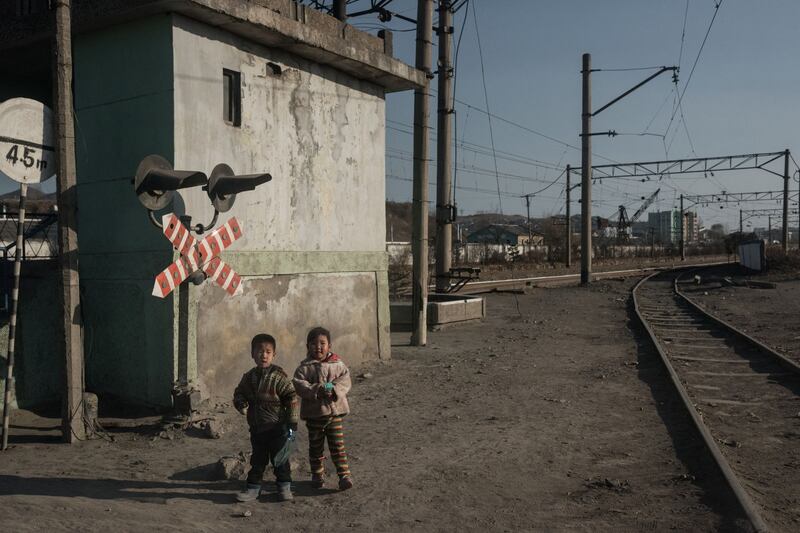After a soldier froze to death in November due to a lack of lodging, North Korean leader Kim Jong Un personally ordered the construction of inns and restaurants specifically for military use, residents in the country told Radio Free Asia.
The soldier was traveling for work, delivering secret documents from one part of the country to another. When he arrived in Hamju county in the eastern province of South Hamgyong, he was not able to afford a room, so he stayed out in the open air and froze to death, a resident of the northern province of Ryanggang told RFA Korean on condition of anonymity for security reasons.
“Currently, there is one military inn in each province, but it is not available to regular soldiers,” the resident said. “Only high-ranking commanders or the regiment commander and above can use it. Soldiers on remote missions have to spend their own money to secure lodging and meals, so those without money have no choice but to survive by stealing or robbing.”
The incident is reminiscent of one in 2016, when four soldiers got lost during winter training and froze to death, even though there were residents nearby that could have helped them. The soldier who died in November was in a populated town.
Though in South Korea one can travel across the country in a matter of hours via high-speed rail, in the North, travel to rural parts of the country can take days due to aging technology and infrastructure and restrictions on movements of people. Some stations only see one train every few days.
A traveler making a transfer to a different line might need to wait a few days for the train to come, so finding food and lodging is important.
Soldiers who have to pay their own way often cannot afford either, and must endure without until they arrive at their destination.
Before and after
Things were different before the “Arduous March,” what North Koreans call the 1994-1998 famine and economic collapse that resulted after aid from the Soviet Union stopped.
“Before the Arduous March, there were separate travel certificates and meal tickets for soldiers, so soldiers could show these at inns or restaurants,” he said. “However, after the Arduous March, these travel certificates and meal tickets for soldiers have become useless,” he said.
The reason the certificates are not honored is because businesses stopped being held aloft by the government as they were before the economic collapse, he said. Now they had to be in business for themselves, and that meant charging prices far higher than the prices the government set.
The resident said that in some towns, people with extra rooms in their homes might rent them out to travelers, but at a steep 10,000 won (US$1) per day, soldiers cannot afford this.

Though there is clearly a need for places for soldiers on remote missions to sleep, the order to create more military inns and restaurants may have other reasons, he said.
“The intention is to fundamentally block contact between residents and soldiers,” said the resident. “The goal is to prevent the leak of military secrets by blocking contact between citizens and soldiers and also to prevent crimes such as theft of military supplies.”
He explained that North Korean marketplaces routinely sell supplies of food, clothing, gasoline, electrical appliances and auto parts that came from the military.
“More than half of the goods sold at the market, including food, clothing, gasoline and diesel oil, electrical appliances, and automobile parts, are military supplies stolen by soldiers,” he said.
Order from the top
Another Ryanggang resident explained that the orders to build military inns came from Kim Jong Un himself, and that every city and county across the country should have at least one. The goal would be to construct a military inn in about 200 cities and counties throughout North Korea, he said.
Members of the military are to serve as construction workers and the work is to be directed by the city and county party committees.
“The Central Military Commission of the Central Committee instructed the construction of military restaurants and inns to be completed within this year,” he said.
He said this would be difficult because it would require coordination between “front-line” and “rear” troops, who operate in different areas. The former are more in number, but concentrated in smaller areas, whereas the rear troops are fewer in number but spread out more.
“The frontline corps, which is responsible for attacking in case of emergency, has more than 100,000 active-duty military soldiers,” he said. “But the rear corps, which is organized around civilian forces, has less than 20,000 active-duty military soldiers.”
Translated by Claire Shinyoung Oh Lee. Edited by Eugene Whong and Malcolm Foster.
